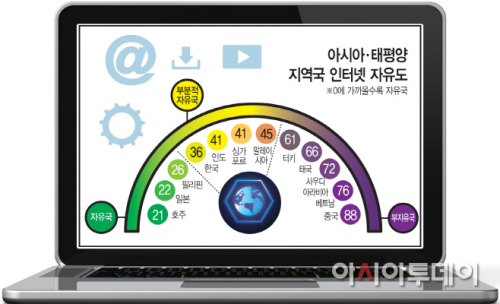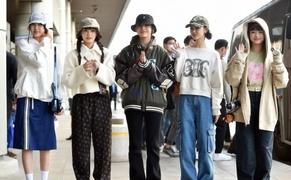 |
By AsiaToday reporter Kim Eun-young - The Internet has created a new landscape of social change as an outlet for open communication. However, it also threatens Millennials with false information and censorship.
Both Google and Facebook announced on Nov. 15 that they will ban fake news sites from using their ad networks to prevent the spread of false information, AFP reported. The shift comes as they face a backlash over the role they played in the U.S. presidential election by allowing the spread of false information supporting a particular candidate that might have contributed to the outcome of the election.
As a majority of millennials rely on the Internet to get information and their consumption of information is quick that they might be caught in a trap of those who get benefits with false information. BuzzFeed News on Nov. 4 reported several cases of spreading fake news about certain candidates during the U.S. election as a means of making money. For example, a website claimed Hillary Clinton will be indicted in 2017 for crimes related to her email scandal, citing unnamed FBI sources. The baseless story generated over 140,000 shares, reactions, and comments on Facebook while the website owner earned revenue from Google AdSense.
There are also concerns about how the situation where the Internet is not free from government surveillance and censorship will affect the millennials. The 'Freedom on the Net' report released by non-profit organization Freedom House on Nov. 15 revealed that various online platforms emerging as effective means of reaching millennials have been subject to growing censorship for years. The report claimed that Internet is "not free" in 20 countries among the 65 countries surveyed, and Asian countries included China, Vietnam, Pakistan, Thailand and Myanmar.
China was the world's worst abuser of Internet for a second year. According to the report, Xi Jinping's "information security" policy cracked down on free expression online and it had an especially harmful impact on human rights defenders who have been conducting online campaigns and protests against the existing surveillance and censorship.
China added a new law that allows for seven-year prison terms for spreading rumors on social media, a charge often used to imprison political activities. The report said some users in China belonging to minority religious groups were imprisoned for watching religious videos on mobile phones. The Economist and South China Morning Post are blocked in mainland China as there are articles that mention sensitive events.
Such censorship is fatal to millennials who are accustomed to share their thoughts and beliefs openly online. The report ranked Saudi Arabia 58th in the index of 65 countries in terms of Internet freedom. In February, Saudi Arabia sentenced a 28-year-old man to 10 years in jail and 2,000 lashes for allegedly expressing his atheism on Twitter. Reuters reported that the man refused to repent, insisting what he wrote reflected his beliefs and that he had the right to express them.
Turkey, whose Internet freedom environment has been "partly free" for a number of years, fell into the "not free" category this year. Since the failed coup in July 2016, President Recep Tayyip Erdogan's new government has strengthened the online censorship and regulation. Turkish authorities are shutting down online media, blocking social media, requesting to remove 'illegal' content, and indicting with the suspicion of defamation to prevent anti-government protests. Earlier this month, Turkey also blocked access to some mobile apps including WhatsApp and Skype.
The report said that such crackdown of governments around the world comes as digital platforms are being used in new and creative ways to advocate for change. It is clear that the Internet is playing a positive role in creating democratic societies by demanding political responsibility, promoting women's rights, and supporting victims of unwarranted accusations. But what millennials should remember is that it is necessary to check whether the information on the Internet is manipulated by someone's interests and power.
#Internet #censorship #fake news #Google #Facebook
Copyright by Asiatoday
Most Read
-
1
-
2
-
3
-
4
-
5
-
6
-
7





















